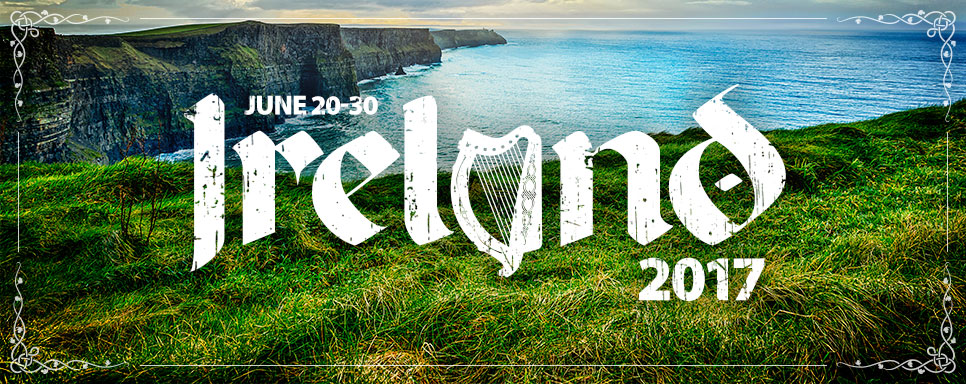The War on Surnames
 any of us are aware of the varied instances in history where tyrants and factions have imposed a mandatory revision of certain families’ surnames — some rulers going so far as to outlaw a family’s name altogether. any of us are aware of the varied instances in history where tyrants and factions have imposed a mandatory revision of certain families’ surnames — some rulers going so far as to outlaw a family’s name altogether.
In the case of my maternal grandfather, I have a tangible link to a movement towards reclaiming that criminalized heritage. His mother’s maiden name was Morrow, a surname easily traced back to Ireland and Scotland. My grandfather, Fred Calvin Blair, Jr., chose to give the name Morrow to his son, only he made it O’Morrow. There hasn’t been an O’Morrow in the direct family lineage for quite some time. So, was this just a whim or did that choice come from something far deeper?
Unfortunately, I never got to meet him and ask his motivation behind that naming but his choice is one that descendants of the Scotch-Irish have made repeatedly in honor of their unique and remarkable cultural inheritance. Thanks to my mom’s memories of him, I know of his love for his heritage, so I wouldn’t be a bit surprised to discover that he knew exactly what he was doing.

Other Items of Cultural Identity Banned in Celtic History
Harps
Tartans, Highland Dress
White Cockades
Bagpipes, Uilleann Pipes
Bards, Minstrels
Historical Ballads
Gaelic Football, Hurling
Weaponry
Inheritance of Land
Gaelic Tongue

|
The concept of your last name being outlawed sounds ridiculous and is pretty unfathomable nowadays, but for the Celtic peoples — who may take the prize as recipients of this form of oppression — it was a very real threat aimed at the heart of their national identity.
An epic struggle was inevitable as tyrants — usually those of English lineage — tried to impose a new lifestyle on the Scots or the Irish. All of their suggestions — gentle or violent — that the Celts would be better off without so much familial closeness were met with defiance and usually had the unwanted effect of drawing the clans closer than ever before.
Never learning their lesson, the English proceeded to spend century after century literally outlawing certain surnames in hopes that the family ties of these Celts would disintegrate.
Why did the English feel so threatened by mere names? Why have conquerers as far back as Nebuchadnezzar felt that they had the ability to abolish someone’s identity by changing their name? What is in a name? And, more to our point now, what is so powerful about a family name and the togetherness it declares?
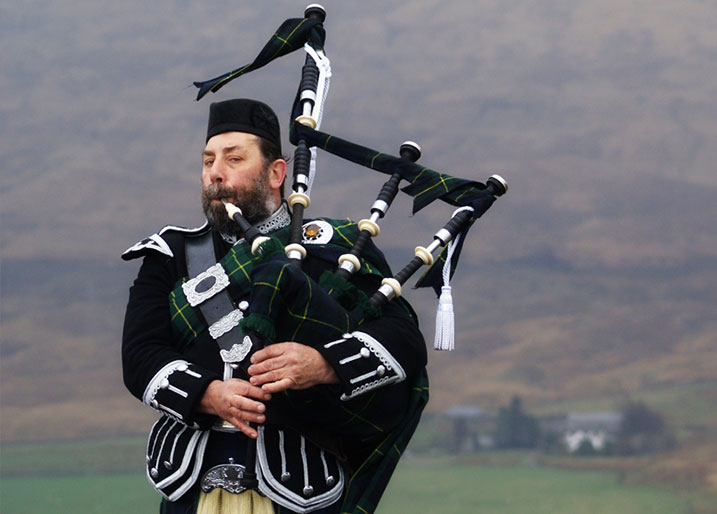
A Scottish Piper Plays Bagpipes
|
|
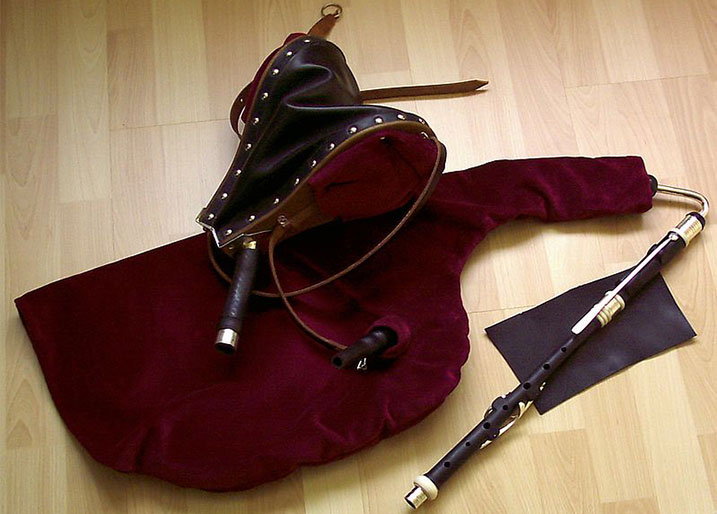
Uilleann Pipes
|
Well, the Bible is clear that where there is loyalty, trust, friendship and honor, wonders happen. Minorities are powerful. The devil and his petty tyrants hate minorities and the minority most feared over the centuries has always been the upright family, because God uses faithful families and their friends to change the world.
Individuals who share the same blood and have been taught the same values, those who have been raised to believe that certain rights and certain people on this earth are worth sacrificing and dying for — there is nothing human that is more terrifying to an oppressor than that sort of ideology. It means the end of regimes, the toppling of principalities. When the reign of selfish individualism is broken, it is the death knell for oppressors.
I’m not saying that every family in Scotland or Ireland was good and loyal to each other because they certainly were not. But the Christian influence which considered the role of the family to be vital remained strong enough for long enough that the English took it as a threat and attempted to Anglicize everything about it, even what the clans called themselves.
Famously, if your last name was MacGregor in early 18th-century Scotland — thanks to the supposed ill deeds of your relation, Rob Roy — you were given two options: change your last name to something unmistakably different (such as Drummond), or be executed. Of course, since you’re Scottish and you’ve inherited a temper worthy of your feisty ancestors, you probably chose neither and took to the heather to do what your countrymen do best: rebel!
Over in Scotland’s sister country, Ireland, English methods for erasing Gaelic heritage were slightly more subtle, although no less determined. Early on in English occupation, the notorious prefix “O” before an Irishman’s last name began to be dropped by census-keepers as well as those Irish who attempted to avoid trouble by blending in with the Norman-English ruling class. However, as late as 1800, the Gaelic language is believed to have remained the majority tongue, and behind that cultural bulwark clung the vast majority of her patriots.
St. Patrick converted the pagan Irish by sharing the Gospel in their own language, creating a written alphabet that was to be used by Christian Ireland to translate the Bible and spread its message across the globe. It was the Gaelic language, with its headache-inducing rules and pronunciations, that kept English influence in Ireland so long at bay.
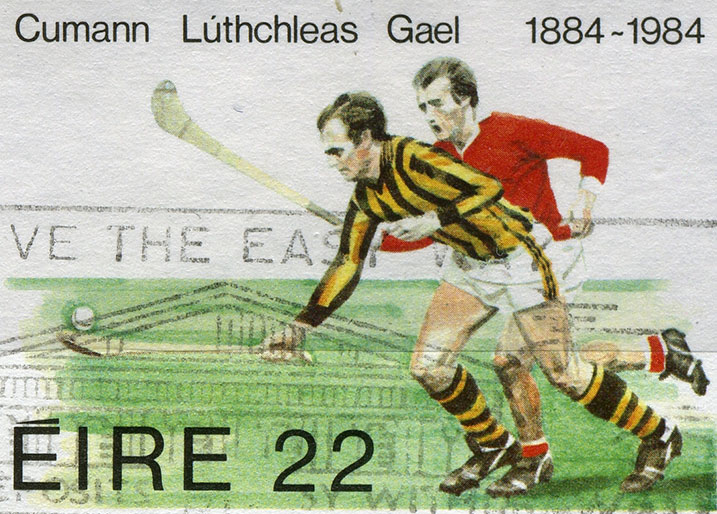
A Game of Hurling
|
|
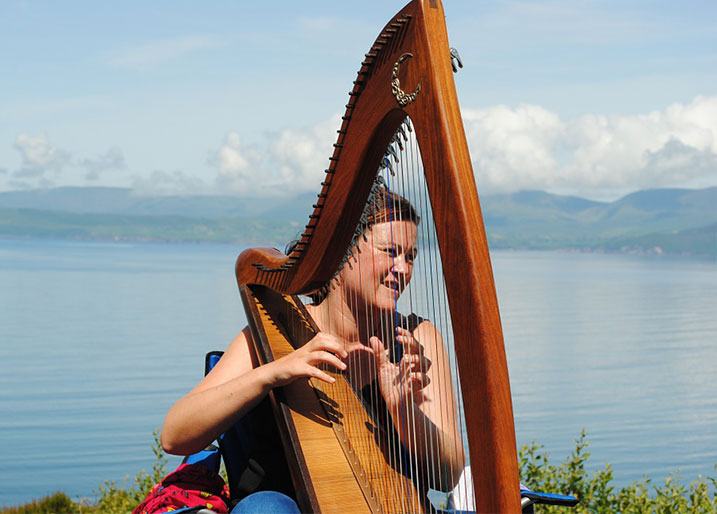
Celtic Harp
|
At the dawn of the 19th century, however, a new chapter began in Ireland in the form of government-regulated “National Schools” where the teachers were English, the ideology was English, and the speaking of Gaelic — even if it were your surname — was a criminal offense.
Subsequently Gaelic, and everything it represented, was decidedly unpopular with the British government until the Irish won their independence in 1922. Part of Ireland’s resistance to these oppressive measures were the prolific “Gaelic Leagues” which began popping up everywhere in the early 20th century. Out of these ardently nationalistic leagues arose many of the men who would ultimately lead Ireland to independence.
This cultural war seemed to find its culmination in 1921 when a document was drawn up by the British and Irish governments negotiating the terms of Irish Independence.
It’s not that the Irish had fought the English to their knees or that such a document was finally created that tickles me. Rather it is the smug, victorious last laugh that the Irish got out of this failed crusade. For next to the British signatures of such politicians as Prime Minister Loyd George, Lord Birkenhead and Sir Winston Churchill is the signature of Irish delegate, Michael Collins. Except, this time, he chose to spell it as Mícheál Ó Coileáin — because when you’re Irish and you’re making history, you go back to your roots and you reclaim the brave, abolished “O”.

Image credits:
1 Bagpipes (Wikipedia.org);
2 Uilleann Pipes (Wikipedia.org);
3 Hurling (Wikipedia.org);
4 Harp (Wikipedia.org)
|






